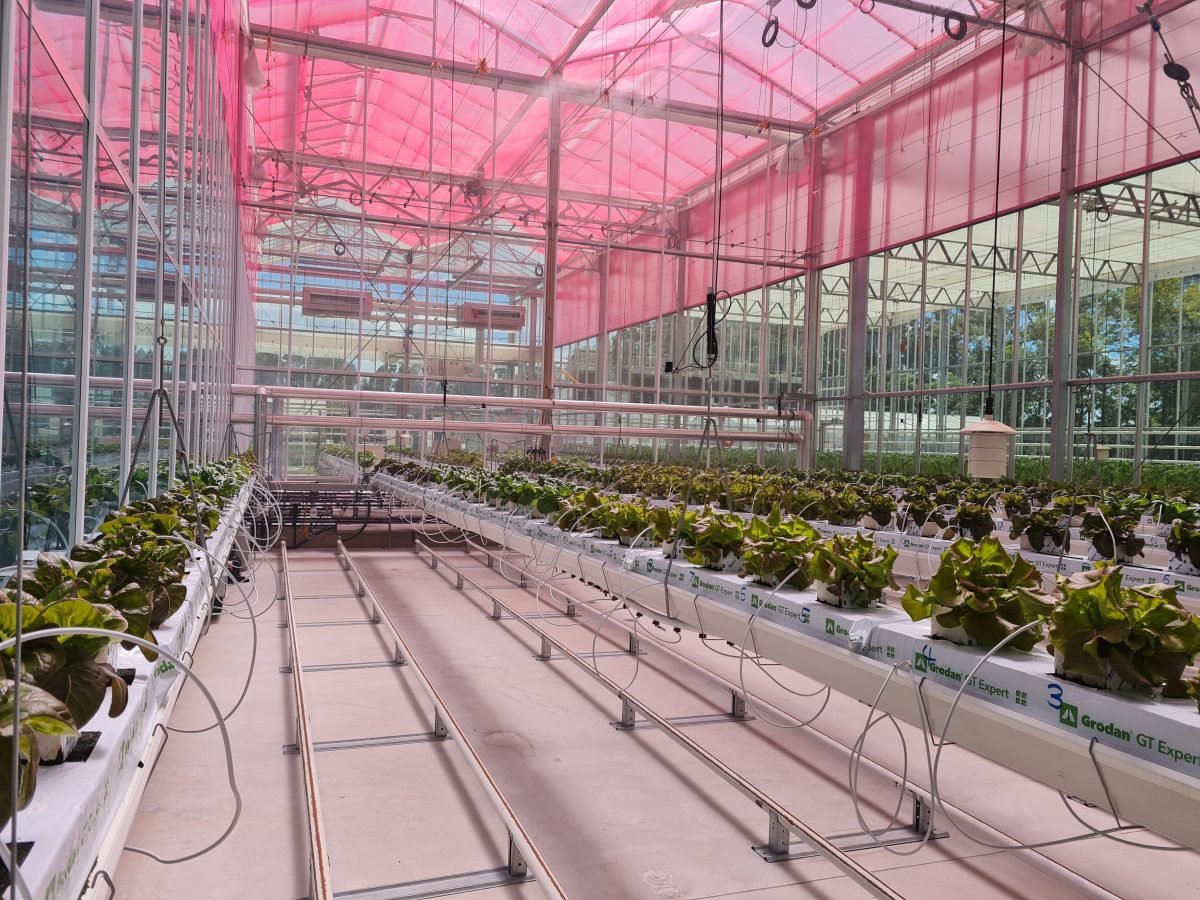
PROGRAM 3 -
Net zero solutions
Program 3 Lead,
Professor Ben Smith
In Program 3, we’re aiming to develop low-input, and low-carbon technologies and policies to strengthen the sustainability of the PC sector.
We’ll be working on developing and delivering improved processes and procedures, including for green supply chain management, for PC sector stakeholders. We will prioritise areas with the most significant negative environmental footprint, to maximise impact as quickly as possible.
The work of this program will be achieved via integrated and collaborative student projects that are co-designed with our partner organisations. Our students and researchers will receive training in Life Cycle Analysis (LCA) and the innovation and development of feasible net-zero solutions.
Program 3 Projects
Project 3.1 - Carbon-neutral Systems
Chief Investigator: Smith
Partner Investigators : O’Hara, Ford, Troughton
Compared to traditional broadacre cropping, Protected Cropping (PC) systems offer potential as a net-zero solution by combining superior use of space with reduced inputs. In particular, use and (over-use) of fertilisers and chemical crop protection products (e.g. pesticides, fungicides) present a major source of agriculture emissions.
Moreso, given Australia’s climate, a substantial energy input is needed for cooling PC environments. Achieving net emissions in the sector will thus depend on improved energy efficiency and/or colocation with renewable energy infrastructure, such as solar farms.
‘Precinct’ developments, such as the Western Sydney Aerotropolis and Hawkesbury Agri Tech Hub, offer exciting opportunities for enhanced financial viability in combination with sustainable production (including emissions abatement). This is due to a number of factors, including relative land costs, reduced transport costs, and access to discerning overseas markets willing to pay a premium price for high quality, sustainably grown produce. These factors will be explored and analysed to develop adaptive strategies for carbon-neutral PC options.
Project 3.2 - Life Cycle Analysis of Food Systems
Chief Investigator: Nakandala
Partner Investigator: O’Hara
Environmental impact is categorised into direct emissions from operations (scope 1), indirect emissions from energy used (scope 2), and indirect emissions from supply chain operations (scope 3). Life Cycle Analysis (LCA) is used to understand end-to-end environmental impact, considering resources, processes, and activities, as a means of identifying impact hotspots along the supply chain. This information can be used to design and develop responses to enhance sustainability performance.
This program will analyse and assess the environmental impact of select products focused on within the Centre, identify and prioritise the supply chain hotspots and investigate innovative approaches to mitigate the impacts.
A range of green supply chain management practices exist and will be explored; these are dominated by eco-designs, green purchasing, green manufacturing, and reverse logistics for environmental performance.
Training for urban and peri-urban key horticulture supply chain stakeholders will be developed and deployed, upskilling participants on LCA and providing knowledge and options for the most relevant and beneficial green supply chain management practices.
Project 3.3- Knowledge Transfer
Chief Investigator: Metternicht
Partner Investigators: Potter
Knowledge transfer is crucial to foster the adoption of new technologies, including those that can drive net-zero solutions. Within the agriculture industry, knowledge transfer generally comes through outside intervention (e.g. as a service provision).
Improving the depth, breadth and accessibility of knowledge to the PC sector will be a major component of this Centre.
This will be done through the development of micro-credentials, vocational education and training courses.
This project’s objective is to facilitate innovation uptake by farmers through improved awareness, understanding and confidence in new technologies, for increased productivity and sustainability.
The Benefits
Improved processes & procedures for PC sector
Improved green supply-chain management
Reduced negative environmental footprints








